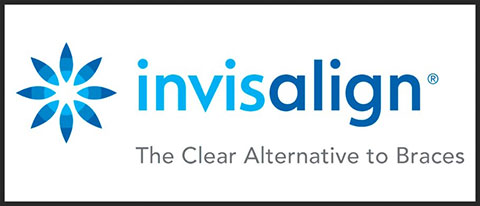In dental care, understanding dentists’ and orthodontists’ distinct roles and areas of expertise is critical to receiving the right oral health services. This comprehensive guide, “Everything You Need to Know: Dentist vs Orthodontist,” aims to outline the differences and similarities between these two types of dental professionals, providing essential insights for anyone navigating the dental healthcare system in Singapore.
Whether you’re dealing with a routine dental issue, contemplating orthodontic treatment, or simply looking to maintain optimal oral health, this guide will offer valuable information on the education, training, scope of practice, accessibility, costs, and the specific circumstances under which you should consult a dentist or an orthodontist. By understanding these distinctions, individuals can make informed decisions about their dental care, ensuring they receive the most appropriate and effective treatment for their dental needs.

Image by teksomolika on Freepik
Dentist vs Orthodontist
Education and Training
Dentists
In Singapore, dentists’ education and training pathways are rigorous and comprehensive, ensuring practitioners are well-equipped to provide high-quality dental care.
Aspiring dentists must first obtain a Bachelor of Dental Surgery (BDS) or an equivalent degree from a recognized university. Prominent institutions like the National University of Singapore offer such programs, which typically span four years and include extensive theoretical and practical training. This education covers various aspects of dentistry, including dental surgery, oral pathology, and patient care.
After completing their degree, graduates must register with the Singapore Dental Council (SDC) to practice legally in the country. Additionally, they must undergo a period of supervised practice, commonly known as housemanship or residency, in approved dental institutions. This phase allows them to gain practical experience under the guidance of experienced dentists.
Orthodontists
Following their qualification as dentists and completion of the mandatory initial years of general dental practice, those aspiring to specialize in orthodontics must undertake further postgraduate training.
This specialized training typically involves a rigorous residency program in orthodontics, lasting three years, offered by accredited institutions. During this period, candidates receive intensive training in diagnosing, preventing, and treating dental and facial irregularities. They learn techniques for managing tooth movement and guiding facial development with braces, clear aligners, and other orthodontic appliances. Successful completion of this program, often culminating in a Master’s degree or an equivalent specialist qualification, is required.
Additionally, orthodontists in Singapore must be registered as specialists with the Singapore Dental Council.
For dentists and orthodontists, continuing professional development is also a key component, with practitioners expected to keep up with the latest advancements in dental science and technology to maintain registration and provide the best possible care to their patients.
Scope of Practice
Dentists
The scope of practice for dentists encompasses a broad range of oral health services, catering to the diverse needs of patients. Registered dentists are qualified to perform various general dental procedures, including routine dental check-ups, cleaning, and preventive care to maintain oral hygiene and health. They are adept at diagnosing and treating common dental conditions such as cavities, gum diseases, and tooth decay, often involving procedures like fillings, root canals, and extractions.

Image by Racool_studio on Freepik
In addition to these general services, many dentists in Singapore offer more specialized treatments, including cosmetic dentistry, such as teeth whitening, veneers, and dental implants. They can also manage emergency dental care, addressing acute issues like dental trauma or severe infections.
Orthodontists
Orthodontists specialise in diagnosing, preventing, and treating dental and facial irregularities, primarily focusing on aligning teeth and jaws to improve both function and aesthetics. Their scope of practice includes designing and applying corrective appliances, such as braces and clear aligners like Invisalign, to straighten teeth, correct bite issues, and address jaw alignment problems.
Orthodontists are experts in managing various orthodontic conditions, ranging from simple cases of crooked teeth to more complex issues involving malocclusion and jaw misalignment. They also play a crucial role in interceptive orthodontics for children and adolescents, providing treatments that guide the proper growth and development of the jaw and dental arches.
In addition to their clinical work, orthodontists often collaborate with general dentists and other dental specialists to plan and execute comprehensive treatment strategies for their patients. Their practice is not just limited to cosmetic improvements but also focuses on enhancing oral functionality and overall dental health.
Accessibility and Costs
Dentists
Dental services are widely accessible in Singapore, with options ranging from public healthcare institutions to private dental clinics.
The cost of dental treatments varies significantly based on the type of service, the complexity of the procedure, and whether it is in a public or private setting.
Public dental clinics, typically found in hospitals and polyclinics, offer more affordable rates and are accessible to a broader population. They provide general dental services, including routine check-ups, cleaning, fillings, and extractions.
Private dental clinics, on the other hand, might charge higher fees. Still, they often offer more comprehensive services, including specialized treatments like cosmetic dentistry, dental implants, and orthodontics. These clinics may also provide a more personalized patient experience and shorter waiting times.
Orthodontists
Orthodontic services, primarily offered by specialist orthodontists, are predominantly available in private dental clinics, although some public healthcare institutions also provide these services.
Regarding costs, orthodontic treatments are generally considered a significant investment, with prices varying based on the complexity of the case, the type of orthodontic appliance used (such as traditional metal braces, ceramic braces, or clear aligners like Invisalign), and the duration of the treatment.
These treatments are typically more expensive than routine dental care due to their specialized nature and the extended duration, ranging from several months to a few years.
Orthodontic patients can consider their financing options and seek detailed consultations with orthodontists to understand the full scope and cost of the treatment before proceeding.
Health Insurance and Medisave
Dentists
Using health insurance and Medisave for dental treatments in Singapore has specific guidelines and limitations. Medisave, a national medical savings scheme, can be utilized for specific dental surgical procedures, such as surgical tooth extractions (including wisdom tooth surgery), dental implants, and gum surgeries under particular conditions. However, it does not cover routine dental procedures like check-ups, cleaning, fillings, or orthodontic work.
As for health insurance, most basic health insurance policies in Singapore do not typically include dental care. However, some private health insurance plans may offer dental coverage as an additional rider or as part of a more comprehensive health plan. These plans can vary significantly regarding coverage, including what types of dental procedures are covered and to what extent.
Patients should review their insurance plans to understand the coverage for dental treatments and consider purchasing additional dental insurance if necessary. To understand any out-of-pocket costs they may incur, it’s also essential for individuals to check with their dentist or insurance provider regarding using Medisave and insurance coverage before undergoing dental treatments.
Orthodontists
Most basic health insurance policies in Singapore do not cover orthodontic treatments as they are often considered elective or cosmetic. However, certain private health insurance plans might offer partial coverage for orthodontic procedures, but this varies significantly among insurers and policies.
As for Medisave, it is generally not applicable for orthodontic treatments like braces or clear aligners, as these are typically under non-surgical dental procedures. Medisave funds are primarily intended for surgical procedures and hospitalizations and do not cover routine dental care or most elective dental procedures.
Therefore, patients seeking orthodontic care in Singapore usually have to consider out-of-pocket payments or explore other financing options, as Medisave and standard health insurance plans provide limited support.
Choosing the Right Care
When to See a Dentist
Consider seeing a dentist for various general dental needs. These dental needs include routine dental check-ups, which are essential for maintaining good oral hygiene and identifying potential issues early. Dentists are also the go-to professionals for common dental problems like cavities, tooth decay, gum diseases, and toothaches. If you experience a dental emergency, such as a broken tooth, severe pain, or trauma to your mouth, a dentist can provide the necessary urgent care.
Additionally, a dentist can assist you if you’re looking for cosmetic dental procedures like teeth whitening, veneers, or bonding. Dental restorations, including fillings, crowns, bridges, or dentures, are also within a dentist’s expertise.
Lastly, if you suspect you need orthodontic treatment, your dentist can provide an initial assessment and refer you to an orthodontist.
When to See an Orthodontist
An orthodontist is a specialist you should consult when dealing with issues related to the alignment of teeth and jaws. If you have misaligned teeth, overcrowding, wide gaps between your teeth, or if your jaws don’t align correctly, an orthodontist can provide the appropriate treatment. Treatment includes addressing malocclusions such as overbites, underbites, crossbites, and open bites using braces, clear aligners like Invisalign, and other orthodontic appliances.

Image by gpointstudio on Freepik
Orthodontists are also the right professionals for preventive or interceptive care, particularly in children, where they guide the proper growth and development of the jaw and teeth.
After completing orthodontic treatment, you would also visit an orthodontist for post-treatment care and monitoring.
Conclusion
In conclusion, understanding the distinct roles and specializations of dentists and orthodontists in Singapore is crucial for anyone seeking dental care.
Dentists provide a broad spectrum of general dental services, including routine check-ups, cleanings, fillings, extractions, and addressing common dental problems. They are the primary care providers for oral health, suitable for a wide range of dental needs and capable of performing cosmetic dental procedures.
On the other hand, orthodontists are specialized dental practitioners who focus on correcting teeth and jaw alignment issues. They are the experts you turn to for braces, clear aligners like Invisalign, and other orthodontic treatments.
In Singapore, where both professions are regulated to ensure high standards of care, your specific dental needs will determine the choice between a dentist and an orthodontist. While a dentist ideally addresses general dental health concerns, specialized orthodontic issues require the expertise of an orthodontist.
The cost and accessibility of these services vary, with public and private options available and considerations like health insurance and Medisave playing a role in managing expenses.
Overall, maintaining good oral health involves leveraging the expertise of both dentists and orthodontists, depending on your circumstances. Regular dental check-ups and timely consultations with the appropriate dental professional can lead to better oral health outcomes and a more practical approach to dental care.



Join the discussion 4 Comments